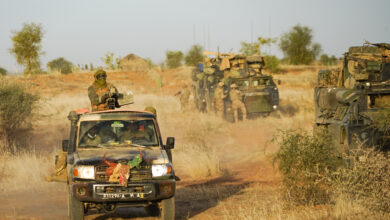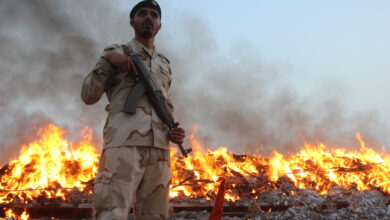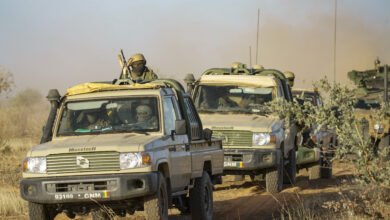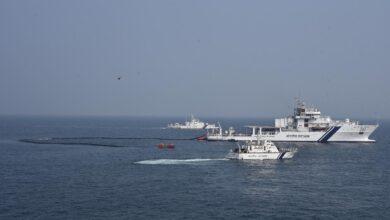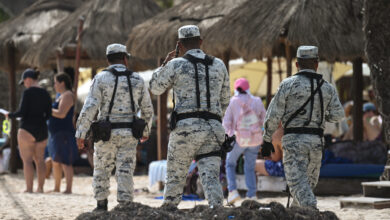Nine Malian soldiers attached to the G5 Sahel Joint Force were killed when a vehicle in which they were traveling was struck by a roadside bomb, the Armed Forces of Mali said on Friday, March 1.
The incident occurred in the morning in Boulkessi in the Mopti region near the border with Burkina Faso, the military said in a statement.
The attack also left a number of wounded “who require urgent treatment,” a military official told AFP.
#Mali: This deadly IED ambush comes in close connection to the 2nd anniversary of the #JNIM merger, the first attack claimed by JNIM in the wake of the announcement took place in Boulkessi on March 5, 2017
— MENASTREAM (@MENASTREAM) March 1, 2019
The latest attack occurred close to a location where 17 civilians were killed when a booby-trapped corpse exploded. The body was that of a man who had gone to find food for his cattle and never returned.
The G5 Sahel was launched in 2014 to improve cooperation on development and security between the five countries of the Sahel – Burkina Faso, Chad, Mali, Mauritania and Niger. They began work in 2015 on the G5 Sahel Joint Force, a counter-terrorism initiative which was spearheaded by colonial power France.
The initiative was prompted by the Islamist insurgency in the Sahel, which since 2012 has gradually spread to central and southern regions of Mali, and into neighboring Burkina Faso and Niger, while Chad is affected by the surge in Boko Haram attacks along its border with Nigeria.
A June 2017 U.N. Security Council resolution called for international support for the G5 Sahel force, and it launched a month later with a mandate to combat terrorism, transnational organized crime and human trafficking.
Troops will work alongside the roughly 4,500 French personnel deployed to Operation Barkhane which has a mandate for counter-terrorism operations across the region, as well as Minusma, which has about 12,000 troops and 1,750 police deployed.
On February 23, French forces with Operation Barkhane killed 15 suspected members of the militant Islamist group Katiba Macina in an aerial raid in the north of Mopti.
Last June, the Joint Force’s headquarters in Sevare, Mali were hit by a devastating suicide bomb and gun attack claimed by the Support Group for Islam and Muslims (JNIM), which has pledged allegiance to al-Qaeda in the Islamic Maghreb.
The E.U. said in July that it would finance the construction of a new headquarters in Mali, and its new commander, Mauritanian general Hanena Ould Sidi said in September that G5 Sahel Joint Force headquarters would move to Mali’s capital Bamako.
A lack of funding and shortfalls in equipment and training have led to delays in the G5 Sahel’s operations, but the force has been carrying out operations since January.
In February, G5 Sahel leaders again called for United Nations funding and other aid to help tackle the cross-border jihadist insurgency, although direct U.N. funding has been opposed by the United States.
Despite almost doubling U.S. assistance to the G5 Sahel Joint Force member states to almost $111 million, that support takes the form of “bilateral security cooperation efforts,” rather than direct funding for the Joint Force.
At a Security Council meeting in November, U.S. Deputy Ambassador Jonathan Cohen said it was “premature” to decide on regular U.N. funding for African missions, citing ongoing questions about human rights and troop misconduct, and in December, the U.S. proposed 11 conditions for the financing of future African Union-led peacekeeping operations, pushing the deadline for a decision to December 2019.
G5 Sahel leaders again call for UN assistance to fund Joint Force
With reporting from AFP



